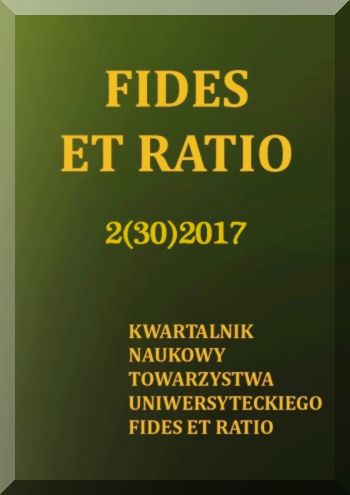Abstract
Freedom in concentration camp sounds like oxymoron. There are many books and memories of tragic, dehumanization, but also there is voice of hope. It is Viktor Emil Frankl’s voice – psychiatrist, philosopher who spent three years in concentration camp. He states that base human motivation is will to meaning. Human being is person who – as individual – have specific, valuable purpose to do. Person transcendents herself/himself toward it and make her/his life full of meaning. Thinking about work to do or partner to love was support for moments of sense of freedom. Other support were admiring beauty of nature, or contact with manifestations of art.
Theoretical foundation for sense of freedom is self-detachment. It is last of human freedom – to choose one's attitude in any given set of circumstances, to choose one's own way. In Frankl opinion it could be in two case: heroism or sense of humour. Article shows examples of self-transcendence, and self-detachment from concentration camp. Nowadays, self-detachment and sense of humour is base for logotherapeutic technique „paradoxical intention”. Self-detachment is also connected with mindfulness which is state of mind helping in terminal illness and other.
References
Frankl, V. E., (2010), Wola sensu. Założenia i zastosowanie logo terapii, Warszawa: Wydawnictwo Czarna Owca.
Frankl, V. E., (2011), Człowiek w poszukiwaniu sensu. Głos nadziei z otchłani holokaustu, Warszawa: Wydawnictwo Czarna Owca.
Frankl, V. E., (2017), Lekarz i dusza. Wprowadzenie do logoterapii i analizy egzystencjalnej, Warszawa: Wydawnictwo Czarna Owca.
Germer, K. Ch., Siegel, R. D. i Fulton, P. R., (2015), Uważność i psychoterapia, Kraków: Wydawnictwo Uniwersytetu Jagielońskiego.
Kabat-Zinn, J., Mindfulness-Based interventions in context: past, present and future, Clinical Psychology: Science and Practice, 2003, 10(2), 144-156.
Kabat-Zinn, J., (2014), Praktyka uważności dla początkujących, Warszawa: Czarna Owca.
Oleś, P., (2011), Wprowadzenie do psychologii osobowości, Warszawa: Wydawnictwo Naukowe Scholar.
Popielski, K., (1987), „Wymiar ludzki” – znaczące odkrycie współczesnej psychologii, (w:)
K. Popielski (red.), Człowiek – pytanie otwarte, (s. 7-24), Lublin: Redakcja Wydawnictw Katolickiego Uniwersytetu Lubelskiego.
Segal, V. Z., Williams, G. M. i Teasdale, D. J., (2009), Terapia poznawcza depresji oparta na uważności. Nowa koncepcja profilaktyki nawrotów, Kraków: Wydawnictwo Uniwersytetu Jagiellońskiego.
